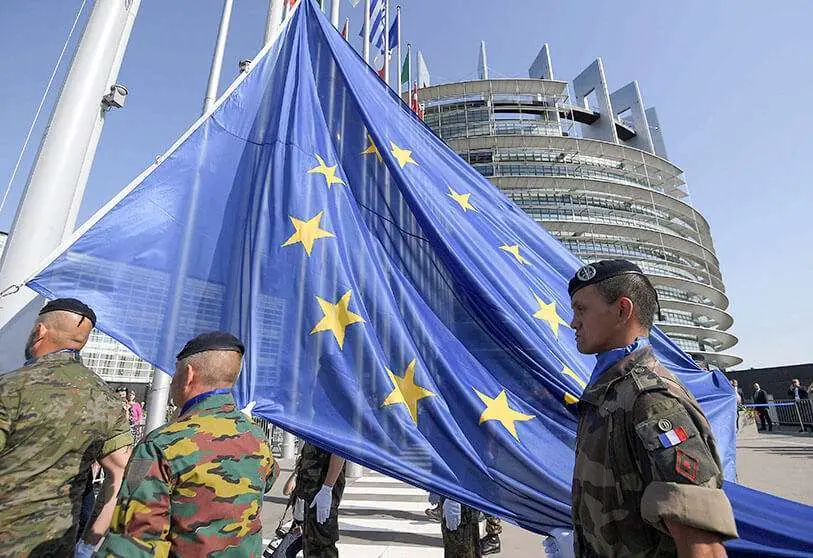Strategic autonomy: not without a European Army

Since Josep Borrell took office as High Representative of the European Union, he has set himself the goal of achieving strategic autonomy for the Union. This is a concept that is difficult to specify, and which has different interpretations, but which took on a new aspect when, as a result of the situation in Afghanistan, Borrell stated that "we would now like to have the capacity to act on our own, to have a military force capable of mobilising itself as the Americans mobilise theirs", thus opening the debate on the possibility of creating a European army.
The withdrawal of international troops from Afghanistan, and the subsequent takeover by the Taliban, has given rise to a host of opinions on what went wrong and the consequences for both the country and the rest of the world. Not least. For the European Union, it is a wake-up call, and presents an opportunity to begin to rethink the EU's common foreign and defence policy stance. One of the conclusions drawn by the High Representative in his analysis of the intervention in Afghanistan is the importance of moving away from a model of military cooperation between EU member states, and instead promoting a model of integration. The objective: to ensure that the Union has the capacity to act swiftly and autonomously in critical situations such as those experienced in Kabul in recent weeks.
One of the great challenges facing the European Union in its attempt to achieve strategic autonomy is the difficulty of acting in foreign and defence policy. The adoption of any decision in the Council requires unanimity among all member states. It is therefore a matter that remains in the hands of the member states, while the EU has no capacity of its own to take any initiative beyond submitting proposals or suggestions. Faced with this obstacle, Borrell's predecessor, Federica Mogherini, proposed so-called "enhanced cooperation", an instrument that allows those member states that wish to do so to operate jointly, taking a step towards greater integration in foreign and defence policy.
Last year, EU defence ministers went further by starting to draw up a 'strategic compass' for security and defence, which is still under discussion and aims to define a common strategy to address the main threats and risks for the EU, as well as to establish the kind of international actor it intends to be. One of the issues that has emerged from this debate is the possibility of creating European battalions that could be deployed in emergency situations. In other words, an embryonic European army.
The creation of a European armed forces is an issue that has been on the table for years, yet has been considered utopian until now. Its development is undoubtedly a challenge for the EU, as it is a project that faces the reluctance of some member states, while others, such as France and Germany, have promoted it over the last few years. Emmanuel Macron considered it essential to create "a real European army", an idea that Angela Merkel supported, considering it necessary for the EU to have "its own army" to have "its destiny in its own hands". The German chancellor's words make it clear: strategic autonomy requires a European army.
One of the reasons why it is urgent to move towards the integration of the armed forces of the member states is the importance of the EU's military power ceasing to be subordinate to that of the United States. Until now, the United States has had the upper hand in international relations, as well as within NATO. The EU must demonstrate that it has not only the capacity, but also the will, to be a relevant military actor on the international stage. The development of integrated military forces that can deal swiftly and effectively with whatever threats or risks the future holds is essential to underline the EU's position in an increasingly multipolar world. The situation in Afghanistan in recent weeks is evidence of the EU's lack of autonomy. In an article published in the New York Times on the withdrawal of international troops from Afghanistan, Josep Borrell stated that, "in the end, the timing and nature of the withdrawal was set in Washington. We Europeans find ourselves - not just on the Kabul airport evacuations, but in general - dependent on American decisions".
The European Union must wean itself from its dependence on the United States. However, this does not mean that it is not more important than ever to strengthen cooperation with NATO. In this respect, NATO member states should increase their commitment to the Alliance in order to put themselves on an equal footing with the United States, which is currently the largest contributor. In the words of the High Representative: "The events in Afghanistan have been shocking. But they must lead us to deepen, not divide, the partnership with the United States. And to strengthen our cooperation, Europe must step up.
One of the great advantages of integrating national armies is a reduction in defence spending by each member state, as it would avoid duplication both in the chains of command and in the procurement of logistics and weapons. With a single headquarters, communication with other organisations, including NATO, would be much smoother. The development of a European Armed Forces would therefore contribute to strengthening NATO and, according to Borrell, to improving relations with the United States, as any alliance needs resources and political trust.


